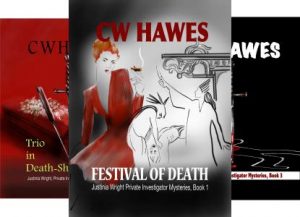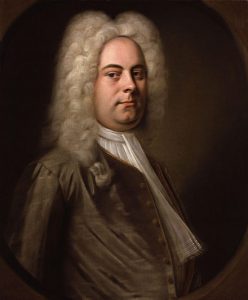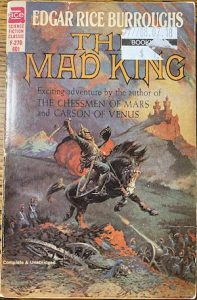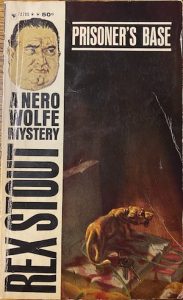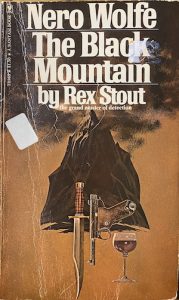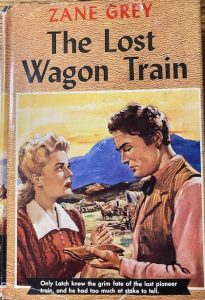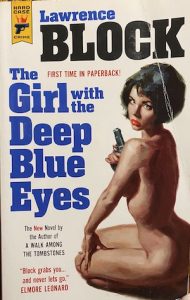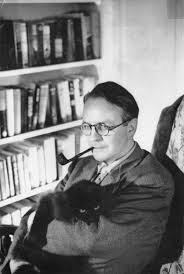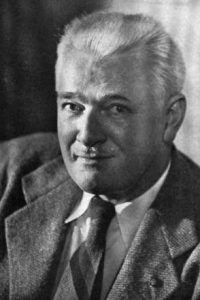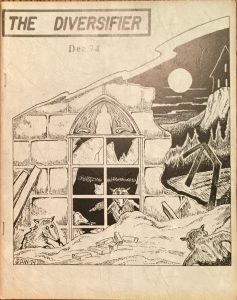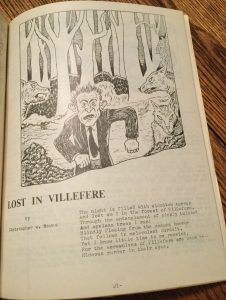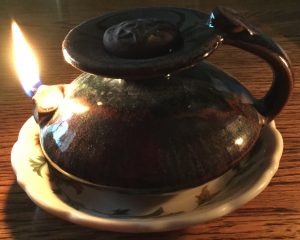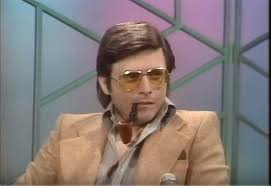
For those who know and read science fiction, you know what a giant Harlan Ellison was and still is in that genre. Even if you’ve never read anything by Ellison, you know the name.
Ellison was born 27 May 1934 in the city I grew up in: Cleveland, Ohio. He died on 27 June 2018 at the age of 84 in Los Angeles, California. His first publishing credits came in 1949 and started a long and prolific career.
Ellison was born too late to be part of the pulp magazine scene, as the pulp mags were dying out about the time he started his writing career. Yet the way in which he worked was very much in the manner of the pulp fiction writers.
I must confess that I haven’t read any of Ellison’s work. By the time I became acquainted with his name, my reading of science fiction was on the wane. However, I was very interested in an article Eric Leif Davin sent out to the members of PulpMags@groups.io on Ellison’s work habits. Because I’m very much interested in why some writers are able to maintain high quality and yet be exceedingly prolific in their output, and how is it they are so prolific in the first place.
One of the things that creative writing teachers teach and the publishing industry itself promotes is the virtue of re-writing. Yet virtually every prolific writer does not re-write. They simply don’t have time. They get it right the first time. Or at least mostly so.
Mr Davin began his article noting two points about Ellison’s writing:
Harlan Ellison produced first drafts quickly, and there was nothing careless or thoughtless about them. If you’d like to read one of his first drafts, just read any of his stories. What you see is what he wrote, first time, last time.
Harlan Ellison was a fast writer and did not re-write. He got the story right the first time. In this, he was no different than such prolific wordsmiths as William Wallace Cook, Edgar Wallace, Hugh B Cave, H Bedford-Jones, Max Brand, or Dean Wesley Smith (although Smith calls himself a three-draft writer).
Mr Davin goes on in his article to say how he watched Harlan Ellison sit in a bookstore window and type a story from start to finish from noon to five each day. Ellison had been doing that for a week. At the end of the day, Ellison would give the typescript to one of the bookstore clerks who would duplicate it and give a copy to whoever wanted one if the person bought $10 worth of books. Davin got a copy and when the story was published, verified not a single word had been changed from the typescript. And Mr Davin was not alone in this assertion. Editor and author Ted White confirmed that this was how Ellison worked.
Five hours, one story. That’s prolific. Five hours, one story, no re-writing. That’s knowing what you want to write about.
It’s my opinion that we writers listen to the advice of people who do not make their living by writing fiction. We accept as sacred shibboleths the words of creative writing teachers who make their money by teaching — but generally have few or no publishing credits of any consequence to their name. As George Bernard Shaw wrote: those who can, do; those who can’t, teach.
For myself, I’d rather listen to those who know the business. They are themselves writers and writers who make money from their writing. People like Dean Wesley Smith, or H Bedford-Jones, or William Wallace Cook, or Erle Stanley Gardner. Or Harlan Ellison.
Mr Davin wrote that after sitting in the bookstore window for five hours typing, Ellison was eager to talk to people and would answer questions.
A female reporter from a local college newspaper asked him the first question: “Why do you write just one draft?”
“Because I get it right the first time,” Harlan answered.
Mr Davin went on to note:
After a few others asked similar questions, I ventured my own: “Are there any circumstances under which you can’t write?”
“Absolutely none,” Harlan replied. “If you’re a true writer, you can write under any conditions…in the middle of a party, riding in a car, in a store window, anywhere.”
That is an amazing statement. A true writer can write anywhere.
As I write this, I’m putting Ellison’s statement to the test. I’m visiting my dad who likes to listen to music and is hard of hearing, even with his hearing aids.
I certainly don’t want to tell the old guy that he can’t listen to his music because I’m writing and like it quiet when I write. And I certainly don’t want to have a non-productive week by not writing. Nor do I want to insult him by putting in my ear plugs and donning my ear muffs to keep out the noise.
So I just write. And you know what? Ellison was right.
Mr Davin complicated his question with a follow up. Outlining an impossible writing situation; at least impossible for most of us. Ellison responded:
“You can write one paragraph, or one sentence, sitting by yourself on the toilet. If you do that every time you go to the bathroom, it adds up. Or you can go into a closet, shut the door, turn on a light, and write. Proust wrote “Remembrance of Things Past” in a small closet. It was cork-lined to keep out the noise, but it was a closet.
A writer writes. And, if you really are a writer, nothing can stop you. You’ll write anywhere, under any conditions, you’ll just do it. It’s that simple.”
So what can we take away from Mr Davin’s article on Harlan Ellison’s writing?
I think it is this:
-
-
- Writers write. They don’t make excuses. They just write.
- Writers don’t need to re-write. They just need to get it right the first time.
- Write fast. By writing quickly, one captures the muse’s inspiration before it evaporates. The work generated from the creative side of the brain is always better than the work from the critical side of the brain.
I know writers, including some who are to me very dear people, who spend more time giving excuses for not writing than they spend in writing. Now I can understand that. Because I was one of them.
But I broke out of that self-defeating dynamic thanks to an article by Lawrence Block in Writer’s Digest. It was the most valuable advice I ever got out of that magazine. We procrastinate, make excuses, for a reason. Find the reason, conquer it, and you will no longer procrastinate.
I no longer procrastinate. I did so because I was afraid of failure and affirming my parents’s opinion of me that I’d never make it as a writer.
I got rid of that fear once I realized that what they thought didn’t matter. I discovered that only what I thought mattered. Since coming to that realization, I’ve been writing like a crazy man. And I’ve discovered that there are people out there who like what I write. The naysayers are rarely right.
Ellison was on the money: writer’s write.
Ellison was also on the money when he said: no writer needs to re-write. Just get it right the first time.
I can say that I am mostly there. My first draft is basically the story. I do some tweaking and minor editing, but nothing major is ever changed. One does not need to re-write to make the story better. Write in the heat of the creative brain. And follow Heinlein: don’t re-write (that is, keep the critical brain out of it), unless an editor tells you to.
I found Mr Davin’s article to be profoundly inspirational. Harlan Ellison was living proof that all those sacred shibboleths are merely words. Follow them if you want. But you don’t have to. And you might end up a better writer if you don’t.
Comments are always welcome! And until next time, happy one-draft writing!
Share This!

